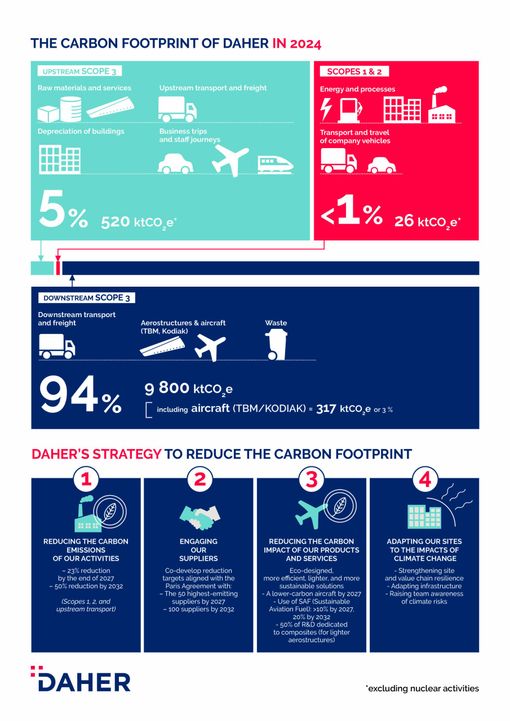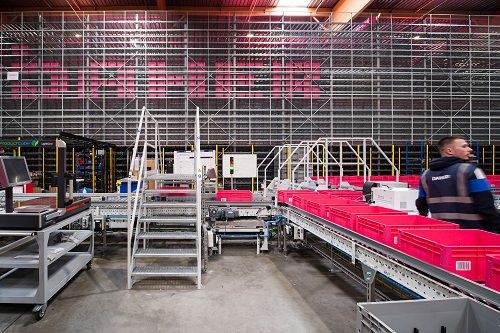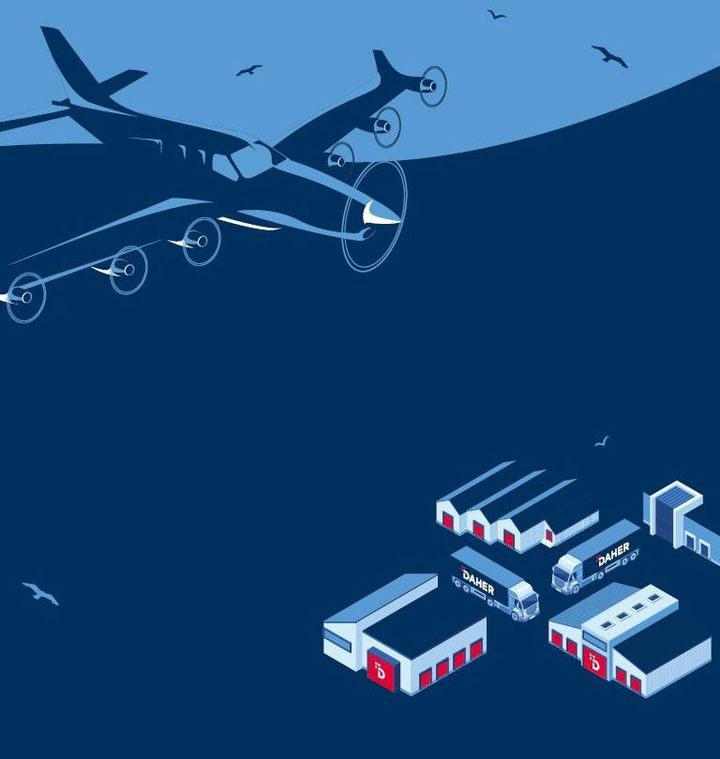Reducing carbon emissions from operations

Daher is committed to significantly reducing its greenhouse gas emissions, aligning its trajectory with the 1.5°C target set by the Paris Agreement. The goal is clear: cut emissions due to operations by 50% between 2022 and 2032, with an initial milestone of 23% by 2027.
To achieve this, the Group is focusing on energy efficiency, electrification of uses, adoption of lower-carbon energy sources (such as SAF and biofuels), and optimization of its processes and facilities.
The carbon footprint of Daher
Daher has been consolidating a complete carbon footprint for its scopes 1 & 2 since 2018
Emission factors for electricity specific to each country are monitored and taken into account.
These data are based either on actual consumption or estimates, depending on the scope.
Download the PDF version of Daher’s Carbon Footprint Report for 2024

Our Ambition
Reduce CO2 emissions (scopes 1 & 2) by 5% annually across the Group starting from 2022.
In action
Energy Efficiency

Energy efficiency is driven through the “Gemba Walk Energy” program, inspired by « Lean Manufacturing » principles. The goal is to identify areas for improvement in energy consumption across sites and eliminate unnecessary consumption through quick, cost-effective actions.
Since 2023, Daher has signed multiple successive contracts with EDF to provide 100% renewable electricity for its French sites until 2027.
Specific and cross-functional projects, such as the installation of photovoltaic panels or LED lighting at various sites, are currently under study, for example, in Tarbes and Tangier.
Daher is also collaborating with the startup Kipsum to monitor gas consumption using artificial intelligence.
Decarbonizing Our Transport

Daher has committed to decarbonizing its own transport by joining the « CO2 Targets » charter, aiming for a 27% reduction in CO2 emissions by 2026 (compared to 2023).
Daher is also developing the use of sustainable fuels for its own transport fleet (aircraft and truck fleet):
- Pur-XTL (synthetic paraffinic biofuel made from waste) tanks have been installed in Toulouse and Tremblay to fuel Daher’s truck fleet.
- Daher has installed « Sustainable Aviation Fuel » (SAF) tanks at its Tarbes and Toussus-le-Noble bases. These tanks partially fuel aircraft for operational flights (production, testing, and maintenance).
Awareness

Training and awareness sessions on decarbonization to align all group employees on the issues, goals, and action plans. Deploying and embedding the decarbonization dynamic into our management systems.
